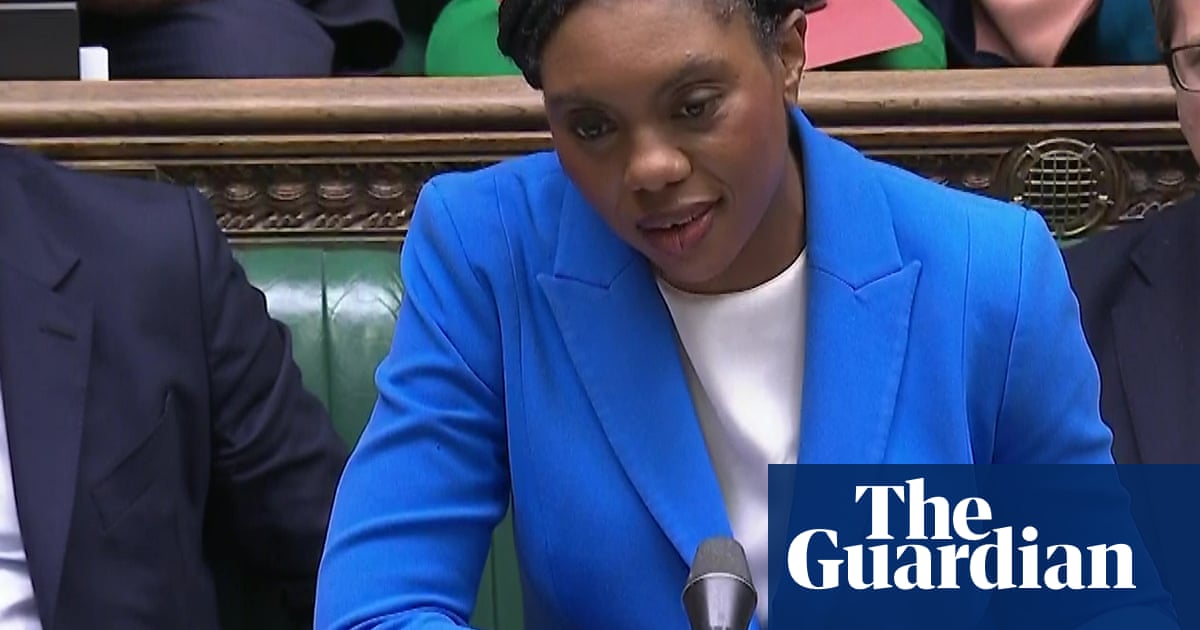Kemi Badenoch has said she will not speak to women wearing burqas in her constituency surgery, and argued that employers should be able to ban their staff from wearing face coverings.
The Conservative leader gave her views after the newest Reform MP,Sarah Pochin, triggered a debateover the subject by pressing the prime minister on whether he would follow the lead of other European countries such as France in banning the burqa.
Badenoch said an interview with theSunday Telegraphthat there were other things that were “more insidious”, such as sharia courts, and that women should be able to wear what they like.
But she said that if people came to her constituency surgery, she asked them to remove face coverings, whether they were balaclavas or burqas. She also said employers should be able to stop their staff wearing burqas if they wanted to.
Reform’s decision to raise the issue and Nigel Farage’s call for a debate on the burqa prompted the party’s chair, Zia Yusuf, to resign.
He has since returned, however, saying he was not upset by the idea of banning the burqa but had been exhausted and demoralised by racist abuse against him as a prominent Muslim politician.
Yusuf told the Sunday Times he would possibly vote in favour of a burqa ban if given the opportunity, but that there were more pressing issues facing the country. He is expected to take up a portfolio of roles for Reform, including leading its government efficiency unit, which will look at spending by the councils the party controls.
The Reform focus on burqas on Friday caused leading Muslim groups and politicians to accuse the party ofinflaming hostility.
The party’s deputy leader, Richard Tice, hasdefended the decisionto start a debate saying the issue cannot be “forced underground”.
Badenoch said in her interview: “If you were to ask me where you start with integration – sharia courts, all of this nonsense sectarianism, things like first-cousin marriage – there’s a whole heap of stuff that is far more insidious and that breeds more problems.
“My view is that people should be allowed to wear whatever they want, not what their husband is asking them to wear or what their community says that they should wear.
Sign up toFirst Edition
Our morning email breaks down the key stories of the day, telling you what’s happening and why it matters
after newsletter promotion
“If you come into my constituency surgery, you have to remove your face covering, whether it’s a burqa or a balaclava.
“I’m not talking to people who are not going to show me their face, and I also believe that other people should have that control.
“Organisations should be able to decide what their staff wear; it shouldn’t be something that people should be able to override.”
Employers are able to set their own dress codes. They could face challenges under equality and human rights law if they were to restrict their staff from observing their religion through their clothing, but rules can override this if they are proportionate and for a legitimate aim such as ensuring effective communication or for health and safety.
The former Labour home secretary Jack Straw revealed in 2006 that he had asked women who came to his constituency surgeries if burqas to remove them, arguing that the conversation would be of greater value without a face covering.
